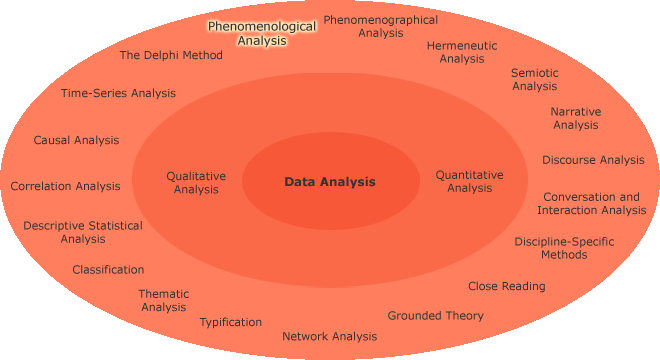Phenomenological Analysis
Phenomenological analysis is based on discussions and reflections of direct sense perception and experiences of the researched phenomenon. A starting point of the strategy is your ability to approach a project without a priori assumptions, definitions or theoretical frameworks. A key aspect of this method of analysis is phenomenological reduction. You need to eliminate any factors, which disturb your perceptions or which you consider as outside factors. As phenomenological research is based on either your own or other people’s experiences and perceptions of the phenomenon, so too does phenomenological analysis focus on either your own or other people’s experiences and perceptions of the phenomenon. Phenomenological analysis is a broad and loose name for various types of analysis based on the phenomenological orientation of the Philosophy of science. These orientations lay emphasis on experiences, interpretations and bodily sensations. You can combine phenomenological analysis with other modes of analysis. A combination of the rules of phenomenological analysis and hermeneutics is known as phenomenological hermeneutic analysis.
Read more on phenomenological analysis from the links below:
Interpretative phenomenological analysis. Wikipedia, The Free Encyclopedia.
Read what is written in Strategies on phenomenological research.
Read what is written in Philosophies of Science on phenomenology.

